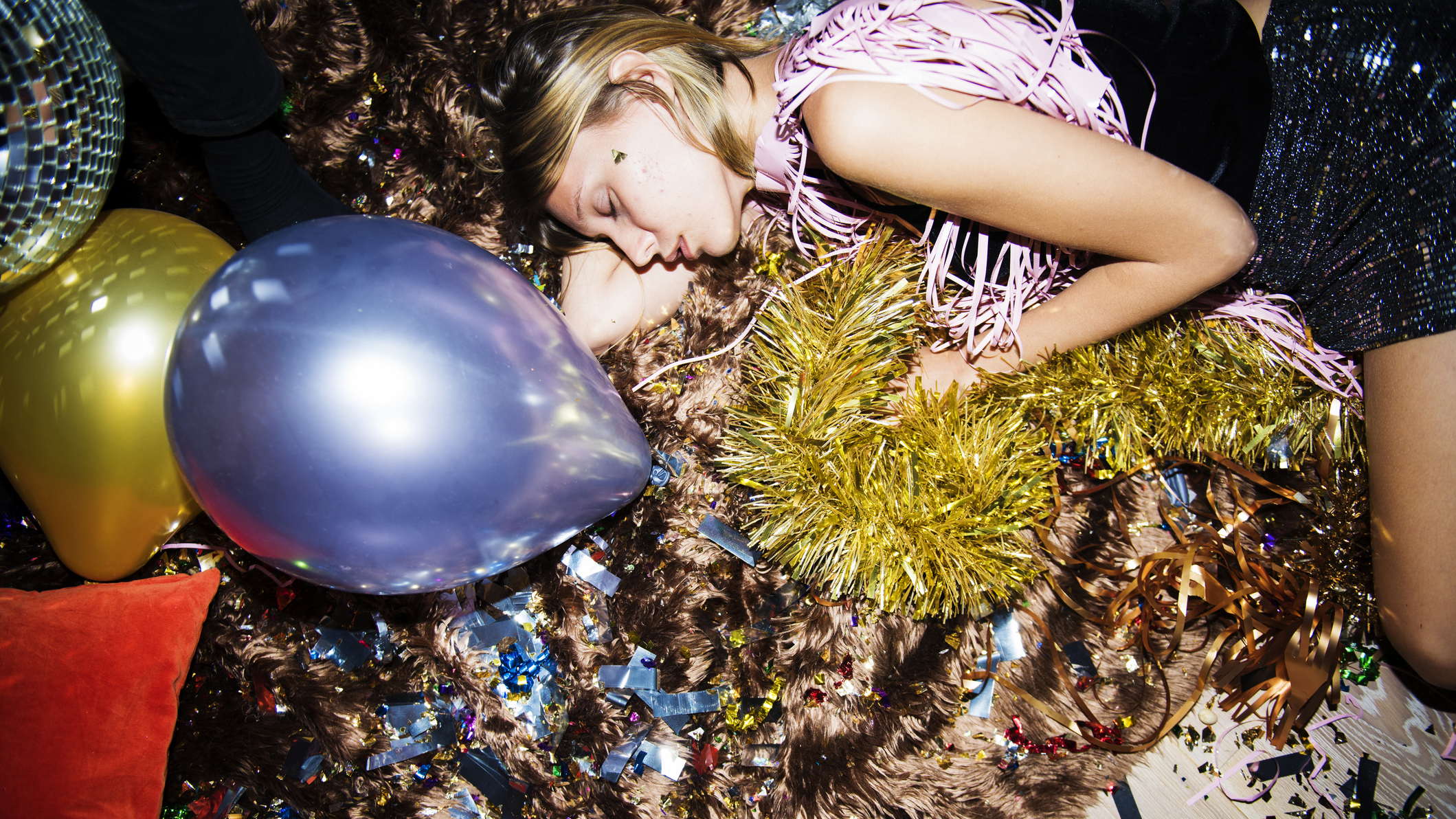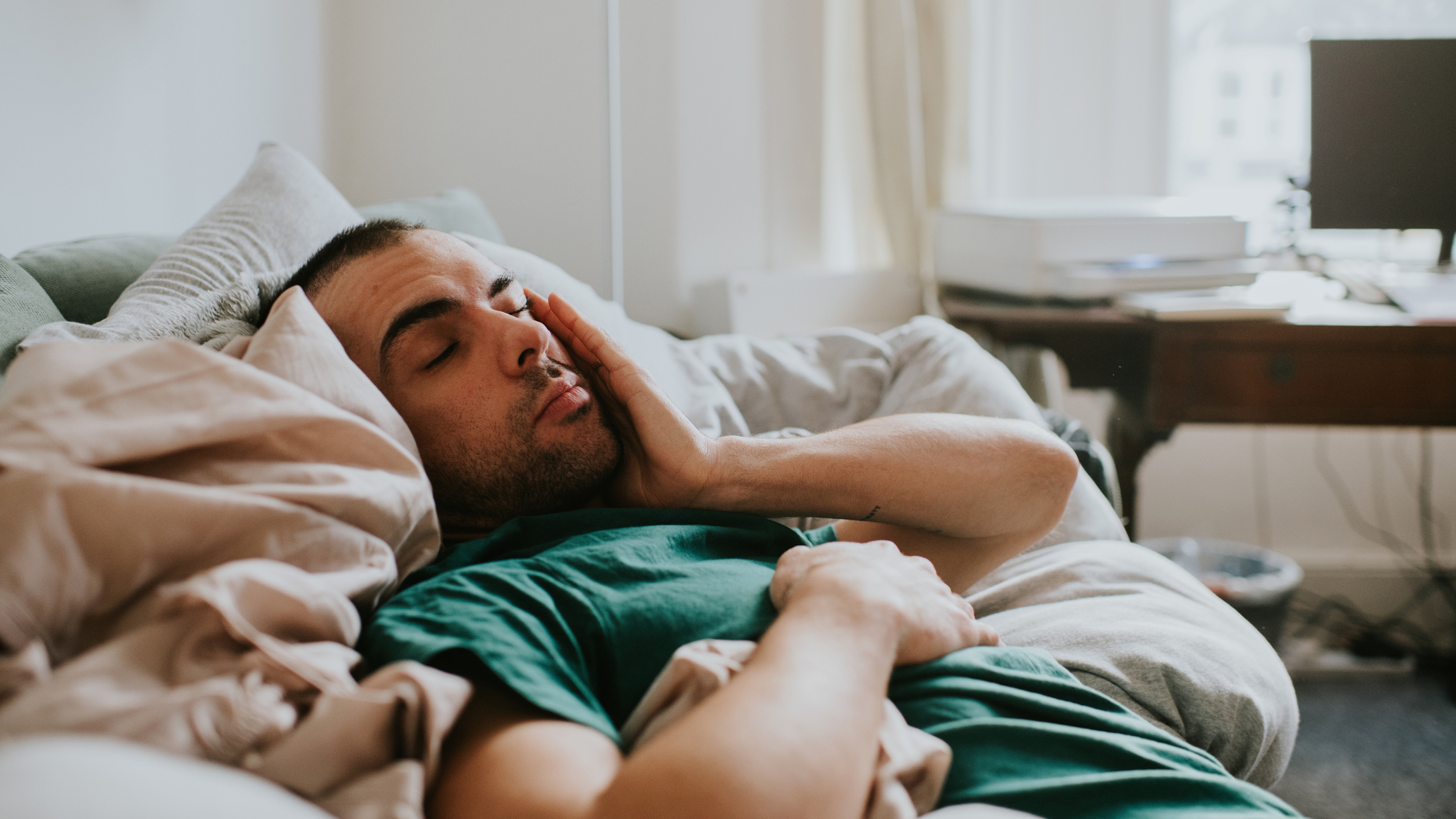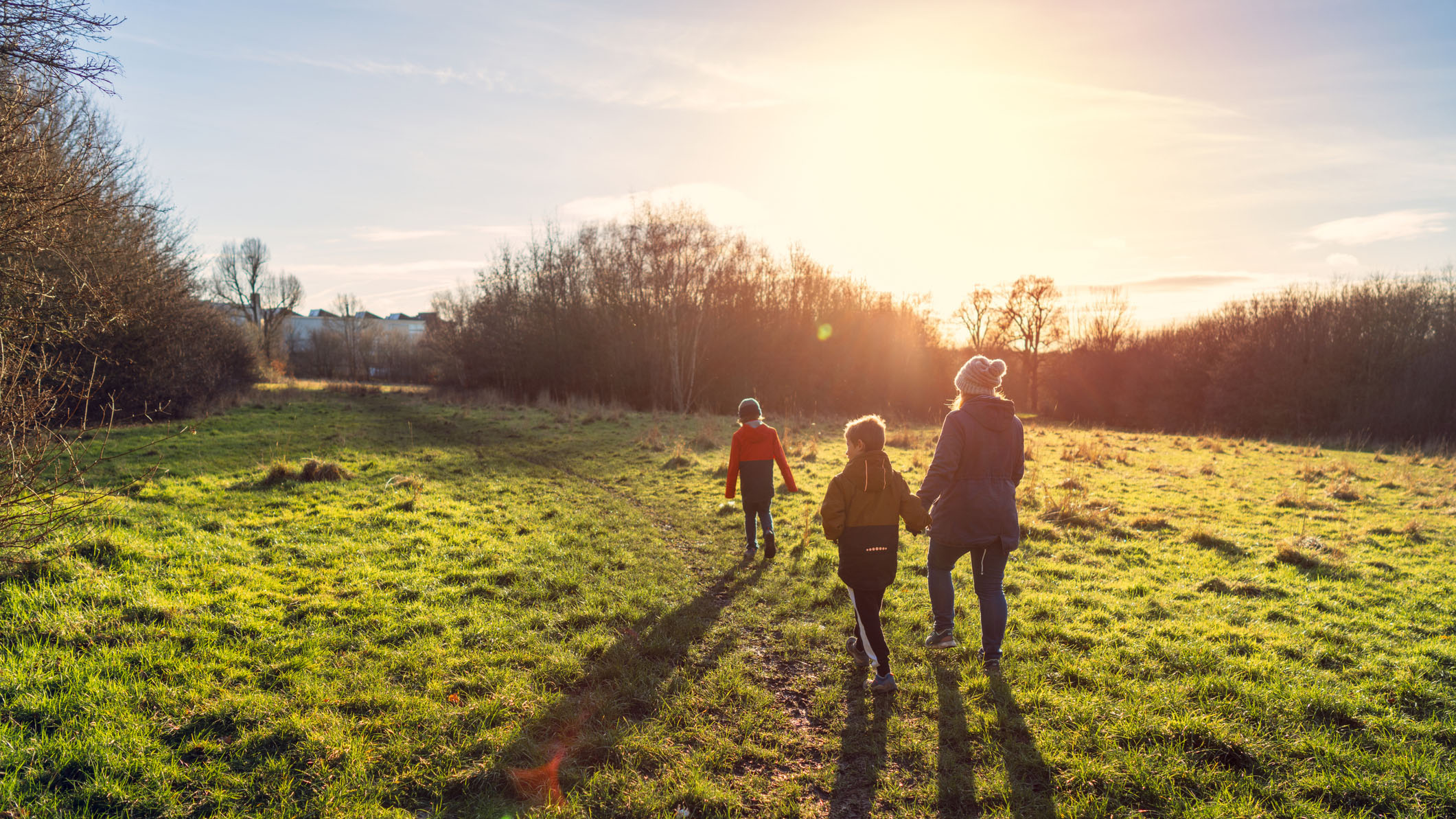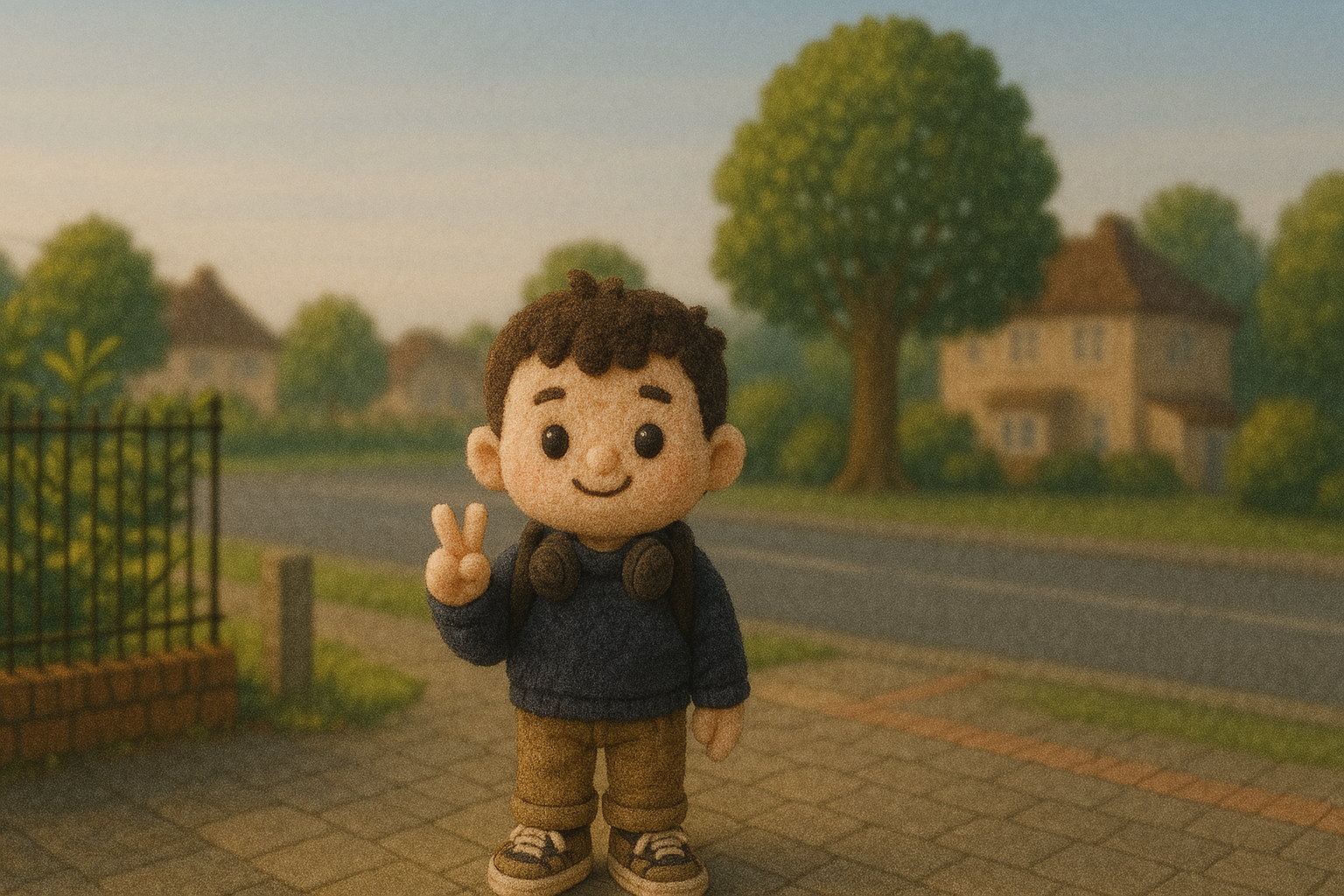This is why you don’t sleep well when you're hungover — and how to fix it
Feeling the effects of New Year's revelry? An expert explains why you can't sleep when hungover

If you’ve just woken up with a stinking hangover after celebrating the start of another new year, you’ll no doubt be feeling a little bit worse for wear, and wondering when it’s acceptable for you to get back into bed again. But many of us don’t sleep very well when we’re hungover.
Why? Because drinking alcohol can make us sleep worse as it elevates our heart rate and breathing, while it also disrupts our REM and deep sleep patterns. But if you also struggle to sleep when you are nursing a hangover the next day you’ll be left feeling mentally drained.
We explore why sleep is tough when we’ve been drinking, the next day when we have a hangover and talk to the experts about how to prepare yourself for a great night's sleep even when you are hungover.
- Rise and shine with the best iPhone alarms according to science
Why can’t I sleep when I have a hangover?
When you’re hungover you’ll no doubt wake up feeling a little thirsty. This could lead to headaches throughout the day if you don’t hydrate properly – and a banging headache doesn’t normally equate to a good night's sleep.
Your sleep/wake cycle (circadian rhythm) could also be affected. If you went to bed late the night before, or you’ve been hibernating indoors all day, your production of melatonin (the sleep hormone) could be hindered, so you could find yourself tossing and turning until the early hours.
Does the amount of alcohol matter?
Does sleep quality when you’re hungover depend on how heavy a night you had? “The time it takes for sleep quality to return to normal after drinking varies depending on the severity of the hangover,” says Dr. Olalekan Otulana, a doctor at Cassiobury Court, “how much alcohol was consumed, blood sugar levels and the amount of quality sleep you achieved the night before.
“Typically, disturbed sleep and an increased resting heart rate are only experienced for the first night after alcohol consumption, though it can extend a further day after binge drinking, or if no food and water were consumed the second day before going back to sleep.”
Sign up to get the BEST of Tom's Guide direct to your inbox.
Get instant access to breaking news, the hottest reviews, great deals and helpful tips.
Recent research backs up this theory, so knowing how much alcohol your body can handle is key to getting a better night's sleep when you have a hangover.

How alcohol affects sleep quality
When we drink alcohol we normally find it easier to fall asleep, but sleep quality is affected. “This is normally due to factors such as dehydration, disrupted REM sleep and breathing disruptions,” says Otulana.
REM, also known as the rapid eye movement stage of sleep, is important for brain development, focus and memory. So not getting enough of this type of sleep could leave you feeling drained mentally the next day.
“Irregular breathing and dehydration can also cause a person to have disrupted and poor quality` sleep,” adds Otulana, “which is why people who drink feel tired the next day, even if they have had several hours of sleep. Snoring and shallow breathing is also common in people under the influence of alcohol which can both disrupt sleep and worsen hangover symptoms.”
Why sleep is so important when hungover
Not only is sleep, when you’re hungover, great for keeping things like anxiety and hunger at bay, but will also get rid of any nasties in the body. “Sleep plays a significant role in the body's natural recovery processes, as fatigue is a key contributor to hangovers, the less sleep you achieve, the worse the hangover symptoms typically are,” explains Otulana.
“Getting as much sleep as possible after drinking and during a hangover, he says will also “help your body to metabolise toxins caused by alcohol, which helps the body’s recovery.”
5 tips for sleeping better when hungover
1. Hydration
If you’re not looking forward to another night of rubbish sleep then hydration is one way to have a better night's sleep, with Otulana explaining that, “Drinking water and replacing electrolytes are the best ways to improve sleep when hungover, as dehydration is a key element of poor sleep.”

2. Getting out into nature
If you can face it going for a run or a cycle outside will not only make you feel more normal and help to raise your heartbeat, but will positively affect your circadian rhythm. Even a short walk in nature will help you feel better as you climb into bed that evening.
3. Track your sleep
Tracking your sleep stages on a device such as a Whoop or Apple Watch will give you more insights into how you sleep when you’ve been drinking alcohol and when you have a hangover. The Whoop also tells you how much of a strain that lack of sleep is putting on your body - allowing you to correct it sufficiently over the next few evenings.
4. Keep it cool and comfy
Changing sheets and making sure your bedroom is well-ventilated will make you feel physically and mentally better, while Otulana adds that, “Sleeping in a cool room can help to cool the body and regulate irregular breathing.”
5. Prepare your bedroom before you go out
To give yourself the best shot of sleeping well with a hangover, get your bedroom ready for sleep before you head out for the night. Claire Davies, Certified Sleep Science Coach and Sleep Editor at Tom's Guide, recommends, "clearing away all clutter so that the room is a relaxing space, and not one that stresses you out because it's so messy.
"Also, ensuring your bedroom is dark, cool and quiet – the perfect conditions for sleeping. I'd also recommend investing in the best mattress for your body and sleep needs if you're current bed has seen better days."
Sarah is a freelance writer who has been published across titles including Woman & Home, The Independent, and the BBC. Sarah covers a variety of subjects, including health and wellness. For Tom's Guide Sarah often writes about sleep health and hygiene, and interviews leading sleep experts about common issues such as insomnia and sleep deprivation.

